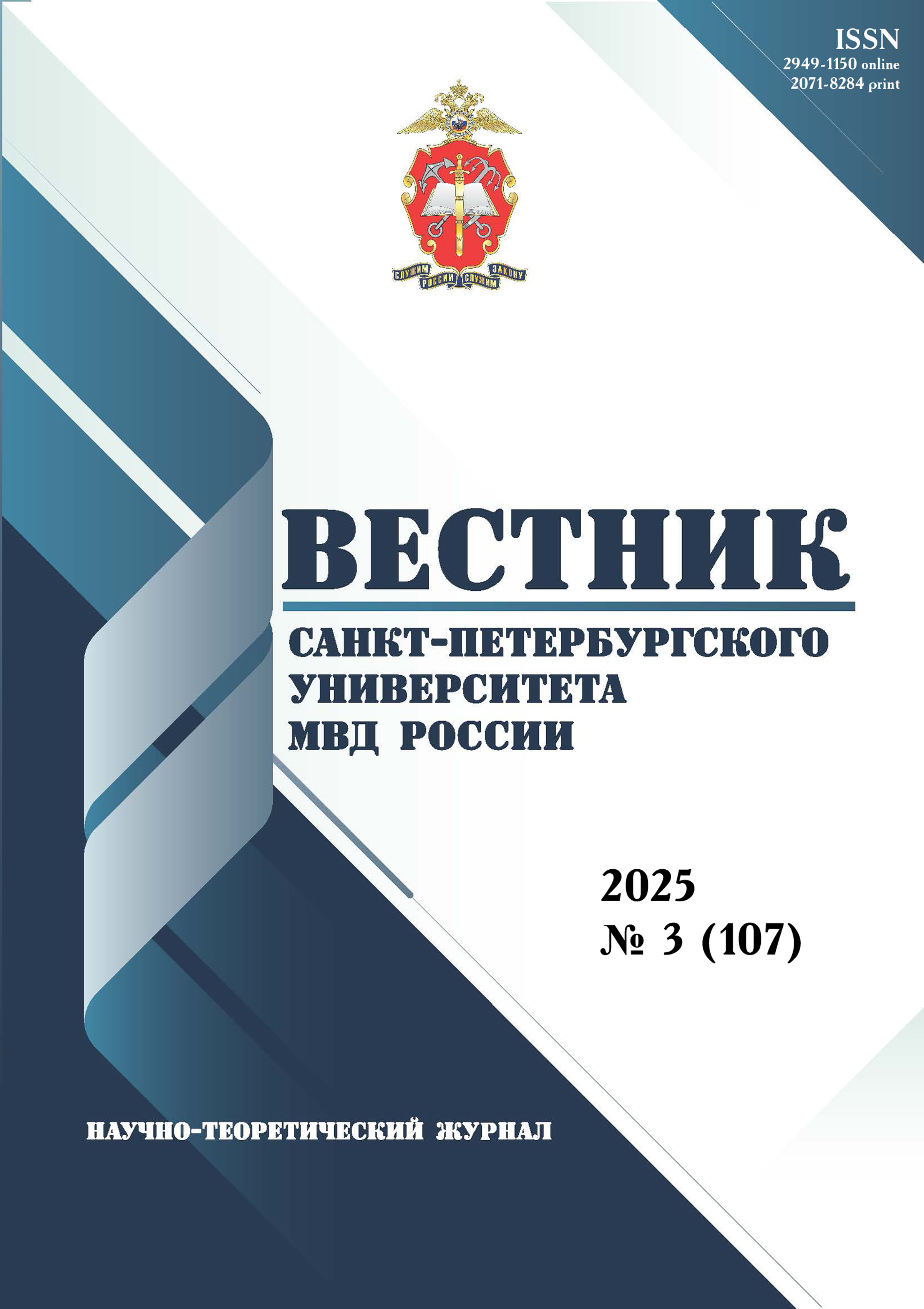Russian Federation
UDC 34.03
Introduction. This article represents the author’s attempt to address the phenomenon of ‘good faith’ from the perspective of a general theoretical understanding the structure of legal behaviour. The research makes a hypothesis suggesting a connection between such uncommon forms of legal behaviour as abuse of right and circumvention of law through the concept of ‘good faith’. Purpose: to fill the gap in legal science and practice regarding a formed understanding of the criteria for the good faith behaviour of participants in legal relations. By perceiving the phenomenon of ‘good faith’ through the unity of natural law and positivist legal understanding, the author forms his own approach to positioning it as a key valuable criterion for distinguishing lawful behaviour from illegal and ‘borderline’ behaviour (using circumvention of law as an example). Methodology. A set of scientific cognition tools is used. Despite their diversity, the primary methods employed in preparing the manuscript were the dialectical method, as well as the formal legal approach implemented for the analysis and interpretation of legislative norms, judicial and other law enforcement practices. Results. A legal-linguistic analysis was carried out, and subsequently, based on it, a substantive examination of the phenomenon of ‘good faith’ was performed, which served as the foundation for a substantive inquiry into the concept of ‘good faith’, examining it through the lens of law doctrine, contemporary jurisprudence, and legislation. A comprehensive study of general scientific and reference literature, regulations, and official law enforcement documents revealed that ‘good faith’ represents an individual’s ability to independently formulate self’s moral duties and ensure their fulfillment; to form inner taboos based on an awareness of duty and responsibility to society; and to conduct constant internal critical self-assessment of actions and omissions for their compliance with morality. The article states that legal doctrine and law enforcement practice need to develop criteria for good faith behaviour of a subject of legal relations, which, according to the author’s concept come down to the following: openness and honesty of intentions when entering into legal relations; reliability and timeliness of mutually transmitted information; predictability of actions; restraint of legal activity, reasonableness of procedural actions; readiness to provide mutual assistance; compliance with business customs (established, traditional rules of conduct). This endeavor may not only contribute to increase of the effectiveness of legal regulation based on the principle of good faith in private law relations but also to raise general level of citizens’ trust in legislative norms and legal positions of public authorities formed on the basis of the interpretation of the concept of good faith..
good faith, circumvention of the law, abuse of right, morality, ethics, value
1. Kudryavcev V. N. Pravovoe povedenie : Norma i patologiya. Moskva : Nauka, 1982. 287 s.
2. Oksamytnyy V. V. Pravomernoe povedenie lichnosti. Kiev : Naukova dumka, 1985. 175 s.
3. Suvorov E. D. Obhod zakona. Sdelka, oformlyayuschaya obhod zakona. Moskva : Izdatel'skiy dom V. Ema, 2008. 186 s.
4. Baranov V. M. Obhod zakona: suschnost' i problemy protivodeystviya / Protivodeystvie zloupotrebleniyu pravom: teoriya, praktika, tehnika : sbornik statey po materialam Mezhdunarodnoy nauchno prakticheskoy konferencii, g. Nizhniy Novgorod, 23–24 maya 2019 g. / pod red. V. A. Tolstika, V. M. Baranova, P. V. Vasil'eva. Nizhniy Novgorod : Nizhegorodskaya akademiya MVD Rossii, 2019. S. 8–34.
5. Ignat'eva A. V. Ponyatie i priznaki obhoda zakona: teoriya i praktika // Vestnik Voronezhskogo instituta MVD Rossii. 2024. № 1. S. 290–295.
6. Dzannini L. P. Druzhba, blagodeyanie i zloupotreblenie pravom: sobiraya svedeniya v raznyh tipologiyah sdelok // Drevnee pravo. 2015. № 1 (31). S. 130–139.
7. Kuznecova I. A. K voprosu o zloupotreblenii pravom pri izmenenii usloviy trudovogo dogovora // Trudovoe pravo v Rossii i za rubezhom. 2025. № 1. S. 35–38. https://doi.org/10.18572/2221-3295-2025-1-35-38
8. Karimullina A. E. Zloupotreblenie pravom v avtotransportnom strahovanii // Transportnoe pravo. 2024. № 1. S. 24–26.
9. Shevchuk D. A. Zloupotreblenie pravom uchastnikami korporativnyh pravootnosheniy // Vestnik arbitrazhnoy praktiki. 2024. № 4. S. 36–42.
10. Staricyn A. Yu. O zloupotreblenii pravom v grazhdanskom processe // Arbitrazhnyy i grazhdanskiy process. 2024. № 7. S. 7–10.
11. Timofeev Yu. A. Zloupotreblenie pravom na primirenie // Arbitrazhnyy i grazhdanskiy process. 2023. № 7. S. 16–17.
12. Baranov V. M., Rep'ev A. G. Obschepravovoy fenomen «obhod zakona»: ponyatie i sootnoshenie so smezhnymi yavleniyami // Vestnik Universiteta prokuratury Rossiyskoy Federacii. 2023. № 5 (97). S. 39–46.
13. Senyakin I. N., Rep'ev A. G., Torchilin K. E. Zapret na obhod zakona v mehanizme pravovogo regulirovaniya: istoriko-pravovoy aspekt // Vestnik Tomskogo gosudarstvennogo universiteta. 2022. № 474. S. 272–284. https://doi. org/10.17223/15617793/474/30
14. Lipen' S. V. Prognosticheskaya metodologiya v yuridicheskih issledovaniyah // Zhurnal rossiyskogo prava. 2019. № 8. S. 5–13. https://doi.org/10.12737/jrl.2019.8.1
15. Podshivalov T. P. Zapret obhoda zakona v rossiyskom grazhdanskom zakonodatel'stve i sudebnoy praktike // Vestnik grazhdanskogo prava. 2015. T. 15, № 2. S. 87–115.
16. Kruss V. I. Konstitucionnaya prezumpciya dobrosovestnosti i problemy ee otraslevoy «konkretizacii» // Yuridicheskaya tehnika. 2010. № 4. S. 276–289.
17. Balashov A. N. O proyavlenii dobrosovestnosti v administrativnom sudoproizvodstve // Zhurnal administrativnogo sudoproizvodstva. 2017. № 3. S. 5–9.
18. Kulik N. V., Kim A. D. K voprosu o principe dobrosovestnosti v ugolovnom processe // Kriminalist. 2023. № 4 (45). S. 66–72.














